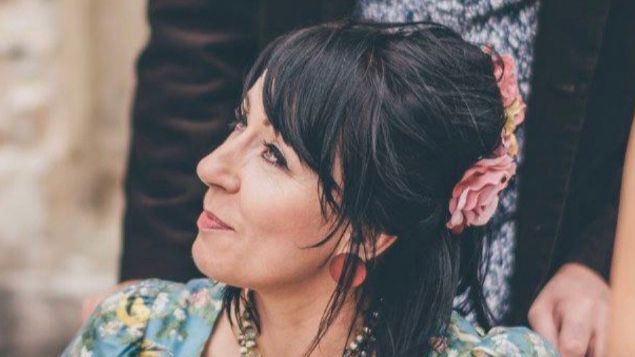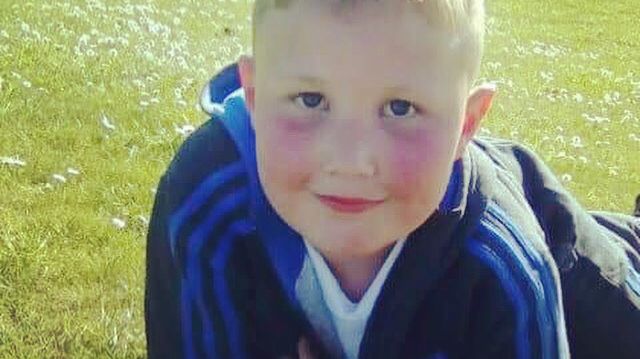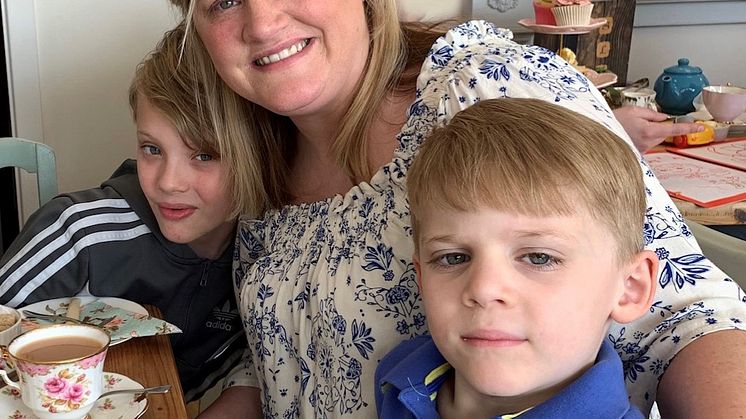
Press release -
Over 14 million UK adults don’t know where a stroke occurs
Over a quarter (27%)of the population don’t know that a stroke occurs in the brain – highlighting a lack of knowledge around the UK’s leading cause of disability.
Nearly half of UK adults know someone who has had a stroke (20 million people), but most admit to a lack of awareness and understanding needed to support stroke survivors in their recovery.
In a separate survey of stroke survivors, more than four out of five (85%) people said the people they had daily contact with did not understand the impact of the stroke.
Startling research unveiled today shows nearly half (45%) of people(i) who know a survivor of stroke personally admitting that they are struggling to support them to make their best possible recovery, according to new findings(ii) published today by the Stroke Association.
The research reveals that one important reason for the lack of stroke support for survivors stems from a lack of awareness of what stroke is and how it affects people. Shockingly, more than a quarter (27%) of the public(ii) don’t know where in the body a stroke occurs: the brain. For those that know a stroke survivor, a huge 82%(i) feel that a greater understanding of stroke would help them support the survivor better.All this, despite stroke being the country’s leading cause of disability.
The research(i) also found that of those who know someone personally who has had a stroke:
Nine in 10 (95%) agreed that family and friends play an essential role in the recovery process.
Nearly half (46%) admitted wanting to do more to help the stroke survivor that they knew but lacked the knowledge to do so.
Nearly a fifth (18%) say they do not properly understand the overall impact of the condition.
In a separate survey(iii) of stroke survivors, more than four out of five (85%) of stroke survivors said the people they had daily contact with did not understand the impact of the stroke. This ‘knowledge gap’ is preventing survivors getting the support they need from those closest to them, and stopping survivors from making the best possible recovery to rebuild their lives after stroke.
Donna Mackenzie-Smyth, 53 from Sheffield, was a busy mum of three when she had a life-changing stroke in May 2016.
Donna said: “I was babysitting my grandchildren with my husband Alan, when I felt a strange sense of impending doom. I always knew I’d been at risk of stroke as it runs in my family. In fact both my grandmas had died of strokes, aged 43 and 52. I was just days away from turning 51.”
Donna lost the feeling in her left side and tried to tell Alan she was having a stroke, but the words wouldn’t come out.
Donna said: “For me, the feeling was instant; it was like my body had been sliced in half. I could see my family looking terrified and I was petrified I might die in front of my grandchildren.”
Donna was rushed to Royal Hallamshire Hospital where it was confirmed she’d had two strokes, which were caused by a PFO (a hole in the heart).
Donna added: “After my stroke I felt like I lost my independence and was so much more reliant on others. I needed help washing and dressing and I could no longer do the things I used to with the grandchildren. I never had confidence issues before my stroke, but now my life seemed to centre around endless hospital appointments. I felt vulnerable and didn’t know how to fit in anymore.”
“I feel that there is a definite lack of understanding for younger stroke survivors. For me when my stroke happened I was only 50. The reaction from friends and people I would meet socially was, ‘well you’re far too young to have a stroke’, yet this obviously wasn’t so. I use this as an opportunity to create awareness of stroke and never to assume that it’s always the elderly who are at risk. I’m now aware that I had suffered mini-strokes in the past, but due to thinking I was too young to have one I did not seek medical advice.”
Now Donna regularly attends the Stroke Association’s peer support groups, and shares her story to raise awareness of the impact of stroke, and that it can happen to anyone, at any age.
The charity published its findings to mark the launch of its newest campaign, Rebuilding Lives, which aims to showcase the challenges faced by stroke survivors and those who support them with their recoveries. Other findings reveal the damaging effects that stroke can have on social networks and relationships:
More than one in 10 respondents admitted to seeing the survivor less after the latter had a stroke.
More than one in six of those who know a stroke survivor, admitted spending less time with them because the latter was perceived as not being the same person following the stroke.
A quarter (25%) said there had been a drop in social activity on the part of the stroke survivor.
Chris Larkin, Director at the Stroke Association, comments: “A stroke happens in the brain, the control centre for who we are and what we can do. The impact varies depending on which part of the brain is affected. It could be anything from wiping out your speech and physical abilities, to affecting your emotions and personality. So, it’s a real challenge for everyone as they come to grips with this sudden and life changing event. These findings highlight the complexity of stroke and raises the desperate need amongst people to understand the impact of stroke in order to better support their loved ones.
“There are over 1.2 million stroke survivors living in the UK – many of whom are reliant on their friends and family, from help with daily living to understanding their emotional and mental health needs.
“It doesn’t have to be this way. We’re urging those people who know someone who has had a stroke to help turn this around and fill this knowledge gap. Reach out to the Stroke Association for help, so that together we can support stroke survivors to rebuild their lives.”
For more information about Rebuilding Lives or about stroke, visit www.stroke.org.uk/rebuildinglives.
For more information about what you can expect after a stroke, the Stroke Association has partnered with the Royal College of Physicians to produce a booklet accessible here: https://tinyurl.com/yyqj638z
Topics



